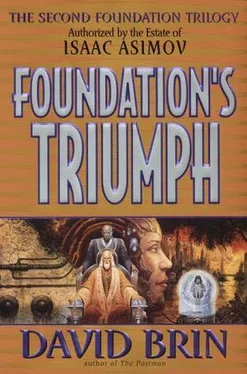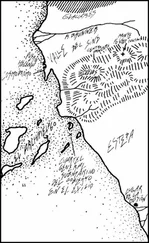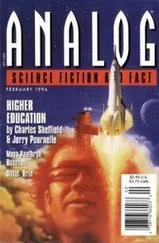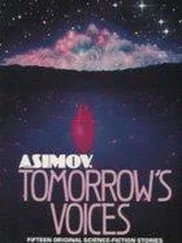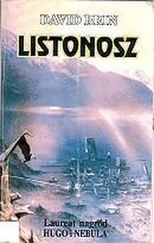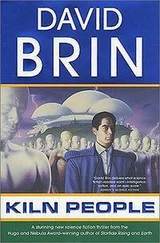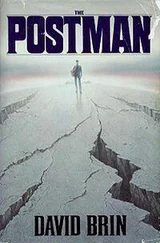David Brin - Foundation’s Triumph
Здесь есть возможность читать онлайн «David Brin - Foundation’s Triumph» весь текст электронной книги совершенно бесплатно (целиком полную версию без сокращений). В некоторых случаях можно слушать аудио, скачать через торрент в формате fb2 и присутствует краткое содержание. Год выпуска: 1999, ISBN: 1999, Издательство: Harper Prism, Жанр: Фантастика и фэнтези, на английском языке. Описание произведения, (предисловие) а так же отзывы посетителей доступны на портале библиотеки ЛибКат.
- Название:Foundation’s Triumph
- Автор:
- Издательство:Harper Prism
- Жанр:
- Год:1999
- ISBN:ISBN: 0-06-105241-8
- Рейтинг книги:4 / 5. Голосов: 1
-
Избранное:Добавить в избранное
- Отзывы:
-
Ваша оценка:
- 80
- 1
- 2
- 3
- 4
- 5
Foundation’s Triumph: краткое содержание, описание и аннотация
Предлагаем к чтению аннотацию, описание, краткое содержание или предисловие (зависит от того, что написал сам автор книги «Foundation’s Triumph»). Если вы не нашли необходимую информацию о книге — напишите в комментариях, мы постараемся отыскать её.
Foundation’s Triumph — читать онлайн бесплатно полную книгу (весь текст) целиком
Ниже представлен текст книги, разбитый по страницам. Система сохранения места последней прочитанной страницы, позволяет с удобством читать онлайн бесплатно книгу «Foundation’s Triumph», без необходимости каждый раз заново искать на чём Вы остановились. Поставьте закладку, и сможете в любой момент перейти на страницу, на которой закончили чтение.
Интервал:
Закладка:
Planch struck the table with his fist, rattling the glasses.
“How recently!”
Lord Maserd frowned at this kind of behavior in his home. But he nodded. “Please tell us, Horis. Your best estimate.”
The Grey Man took a deep breath.
“Roughly eighteen thousand years. A bit more in Sirius Sector. A bit less as you spread outward from there. The phenomenon swept across the galaxy like a prairie fire, reaching completion in a few dozen centuries, at most.”
“The planet that’s mentioned so often in the old archives,” Planch commented, “Earth, is in Sirius Sector. So this tilling phenomenon of yours matches the pace of human expansion from the original homeworld.”
“A little earlier,” Horis agreed. “Perhaps a few hundred years ahead of the colonizing wave. Among the few of us who thought about it, we wondered if some natural phenomenon might account for this massive effect occurring on millions of planets, virtually all at once. Maybe a galaxy-wide energy wave of unknown origin, perhaps emitted by the core black hole. We guessed that the colonizers were then drawn into the affected areas, by the sudden, accidental availability of all this newly fertile land. But now I see that we had cause and effect reversed!”
Maserd uttered a low oath.
“Now you think it was done on purpose, by those big machines out there.” He glanced toward one of the bulkheads separating them from the vacuum of space. “They did this… moving just in front of the human migration, sent ahead to the next unsuspecting virgin world, where they-”
The nobleman stopped, as if unable to speak the obvious conclusion. So Horis continued.
“Yes, they are the tillers. Those energy projectors they carry, that you all thought must be weapons? They were aimed at planets, all right, focusing energy gathered in huge solar collectors. But this was not for use in war. Rather, they had a much more benign aim of preparing the way for settlers, who were soon to follow.”
“Benign?” Maserd muttered into his drink. “Not if you were one of the unfortunate natives, when such a monster appeared suddenly in your sky!”
Mors Planch chuckled.
“You’re pretty soft-hearted for funguses and ferns, aren’t you, nobleman?”
Maserd started to stand up. Hari raised a hand for peace, before the two could exchange blows.
“My lord Maserd comes from a planet near Rhodia, called Nephelos,” Hari explained. “Where complex, nonstandard animals preexisted, and survived the coming of Earthborn life. I believe right now he’s thinking there must have been many other anomaly worlds. Planets where the mutation rate was big enough to create higher life-forms, leaving the fossils Horis showed us earlier.”
“But those worlds weren’t as lucky as Nephelos,” Maserd growled. “Planets where all the native animals were blasted down to just the right consistency for good dirt farming.”
Hari tried to divert the conversation a bit. “One question, Horis. Doesn’t good soil also need nitrates and organic material?”
“It does, indeed. Some was probably provided by maser-induced reactions in the atmosphere. It then arrived mixed in rain. I suspect subsurface carbon deposits were also tapped, and fed to special kinds of rock-loving plants and bacteria…but all of that would have been easy compared to crushing, tilling, and sifting stone to just the right texture and mineral content for vegetation to dig into.”
Mors Planch objected.
“I’m impressed with this fantastic notion, Antic. But the sheer scale of such an undertaking is just too staggering. Something so epic would be remembered. I don’t care what different causes people attribute our racial amnesia to. The descendants of these workers would sing of the accomplishment forever!”
“Perhaps they still do,” said Biron Maserd, who looked at Han. “Maybe this great deed is still remembered, all the way up to the present, by those who actually did it.”
Hari winced with a realization.
Maserd knows. He’s seen the tilling machines up close. Their lack of any habitats for organic crew. He linked this fact with the archives’ mention of robots. Having never had brain fever, he’s not averse to thinking about mechanical men.
You don’t need psychohistory to conclude that some group of non-organic beings set out from the vicinity of Earth and commenced an aggressive campaign to prepare worlds with just the right conditions for settlement by humans. When shiploads of people arrived at each preconditioned planet, they would find it already seeded with a basic Earthlike ecosystem…and possibly even fields of crops ready to harvest.
Hari recalled Antic’s tale about his ancestor, who perhaps had an encounter with a real alien race. If the story was true, it only happened because the nonhumans dwelled on a world that was too hot to be a candidate for conditioning.
Might there have been others, less fortunate? Native sapients whose villages and farms and cities were transformed into mulch for newcomers from across the stars? Beings who never even got to look in the eyes of the pioneers who displaced them? Farmers who would pierce their shattered bones each time a plow bit the rich black soil?
Hari recalled the meme-entities on Trantor. Computer specialists had dismissed the wild software predators as escaped human sims, gone mad from centuries spent caroming through Trantor’s datasphere. But those digital beings had claimed to be something completely different-remnants left behind by earlier denizens of the galaxy, millions of years older than humanity itself.
One thing was clear. The meme-minds hated robots. Even more than they loathed human beings, they despised Daneel’s kind, blaming them for some past catastrophe.
Could this be what they meant? The Great Tilling Episode?
Olivaw had once said something about a “great shame” that lay buried in robot antiquity. His own faction was not to blame, Daneel declared. Another clique, rooted in Spacer culture, had perpetrated something awful. Something that Hari’s robot friend refused ever to talk about.
No wonder, he thought. One part of him found the whole concept of planetary tilling monstrous, and yet…
And yet, to contemplate the mere possibility of numerous types of alien life-forms made him feel queasy. His equations had enough trouble dealing with human complexity. So many added factors would have made psychohistory virtually intractable.
Hari realized he was drifting again. With a jerk, he noticed that Antic was talking to him.
“What, Horis? Could you repeat it?”
The bureaucrat blew a frustrated sigh.
“I was just saying that the correlation is now even better, between your model and mine. It seems we’ve found one of your missing factors, Professor.”
“Missing factors? Regarding what?”
“Chaos worlds, Seldon,” Mors Planch commented. “Our little Grey Man claims there’s a twenty percent correlation between chaos outbreaks and parts of the galaxy where tilling failed. Where the machines broke down, leaving planets unaltered across several stellar veins, arcs, and spiral lanes.”
Hari blinked, sitting straight up. “You don’t mean it! Twenty percent?”
All other worries were abruptly crowded out. This had direct relevance to psychohistory. To his equations!
“Horis, why didn’t you mention this sooner? We must find out which attribute of untilled worlds contributes to the probability func-”
An ululating scream interrupted Hari, sending all four men rushing to their feet. This was no mere cry of transient pain, but an agonized wail of frustration and ravaged hopes.
Mors Planch and Biron Maserd were already out the door by the time Hari limped after Horis Antic into the passageway. Their surprised shouts echoed from inside the ship’s lounge. Then there was silence.
Читать дальшеИнтервал:
Закладка:
Похожие книги на «Foundation’s Triumph»
Представляем Вашему вниманию похожие книги на «Foundation’s Triumph» списком для выбора. Мы отобрали схожую по названию и смыслу литературу в надежде предоставить читателям больше вариантов отыскать новые, интересные, ещё непрочитанные произведения.
Обсуждение, отзывы о книге «Foundation’s Triumph» и просто собственные мнения читателей. Оставьте ваши комментарии, напишите, что Вы думаете о произведении, его смысле или главных героях. Укажите что конкретно понравилось, а что нет, и почему Вы так считаете.
